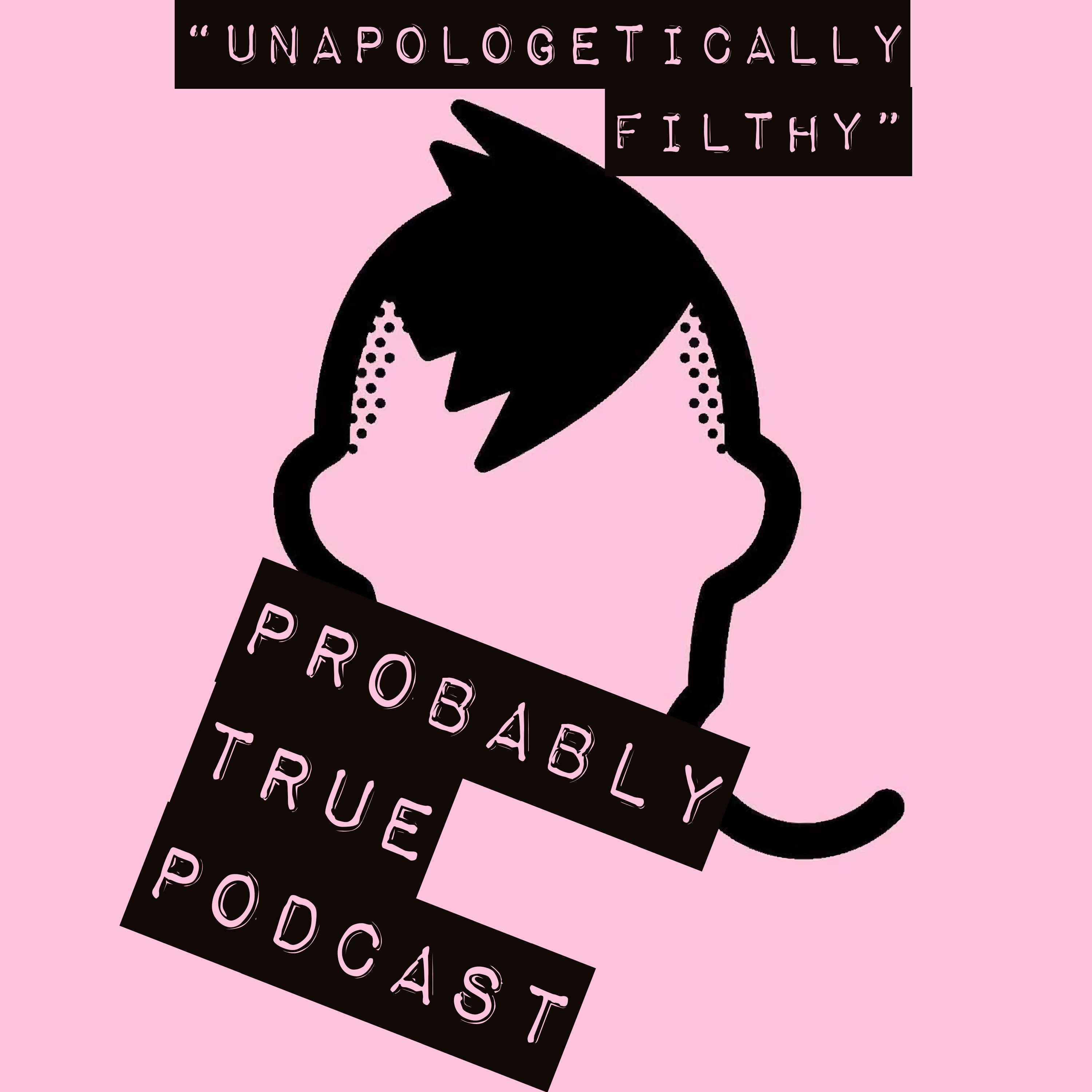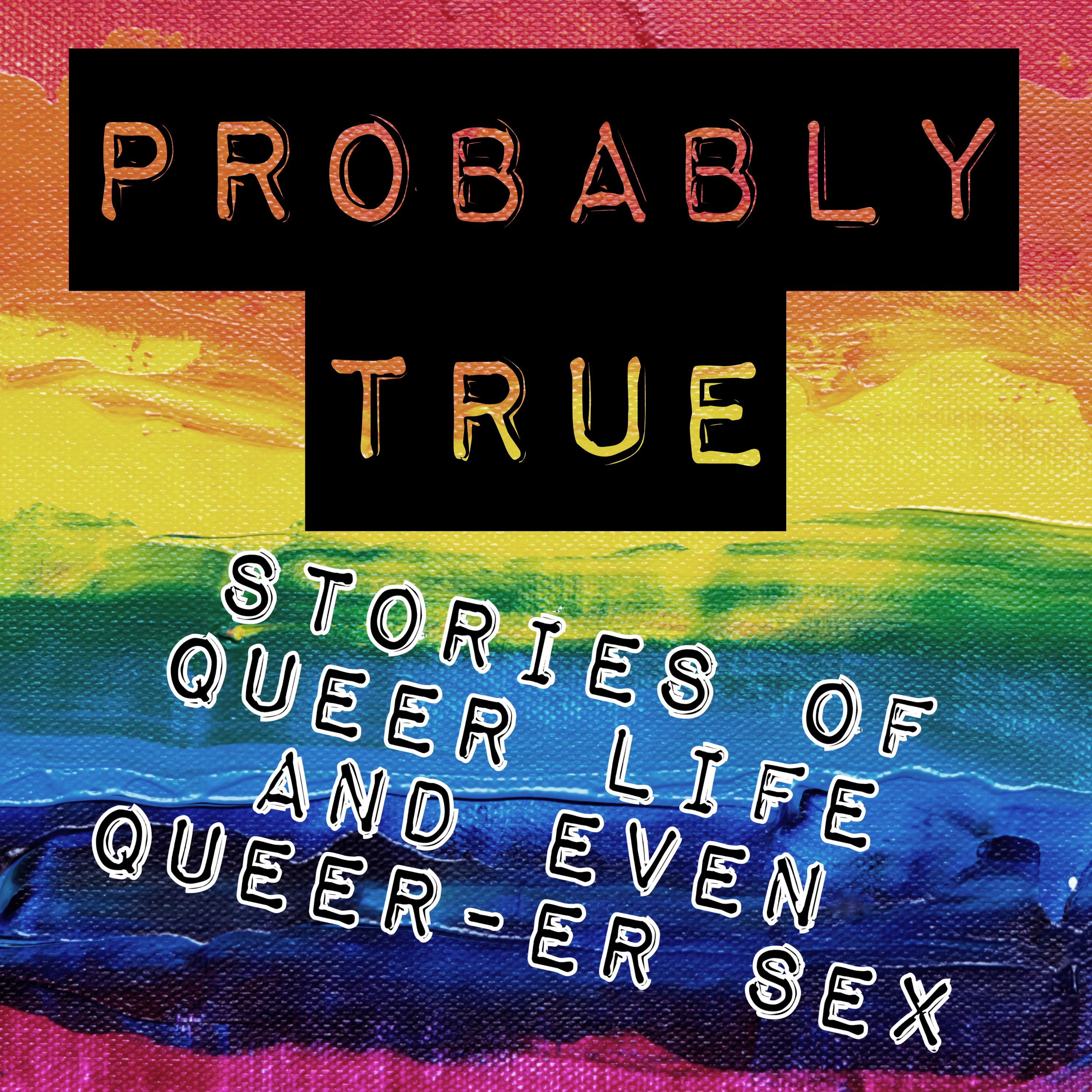Section

Growing up not talking about The Gays
Section 28: Difficult to make funny. OR: I wrote a one-man play and it might have SAVED MY LIFE. (Probably not, but it certainly taught me things no amount of teachers or magazines in hedges did.)
Stories of queer life and even queer-er sex.
Always interesting, definitely amusing, Probably True - the repeatedly-award-winning, slightly filthy storytelling project tackling LGBTQ issues in a fun and engaging way.
Much like its creator, it is a smutty-but-charming collection of personal misadventures working to make the world a better place, one silly, sexy story at a time.
Patreon.com/ProbablyTrue // @ScottFlashheart
Theme music is 'RetroFuture Clean' by Kevin MacLeod
Licensed under Creative Commons by Attribution 3.0 License
See acast.com/privacy for privacy and opt-out information.
This week marks 30 years since Section 28 became a thing in the UK.
For anyone who doesn’t know, Section 28 was a law that the government passed in 1988 that stopped local councils from “intentionally promoting homosexuality”
It didn’t really bother me much when it came into force, but then I was 5 years old, and more interested in normal boyhood things, like Star Trek and annoying my brother, and trying to find my real family, who were obviously rich Americans who would one day come back for me and take me to my real life as some kind of playboy superstar. Y’know, the usual kids stuff.
Incidentally, my dad though this was brilliant. He was all for it. He kept telling me he couldn’t wait for them to turn up, as he’d have a bill waiting for them. Which I thought was a bit of a liberty - surely bringing up a whiny little snotball like me was reward enough… Anyway.
Section 28. Came into law when I was five, and was repealed when I was twenty. So, y’know, most of my formative years.
And let’s just check the wording for a moment. “Not to allow the promotion of homosexuality, or allow the teaching in any school of homosexuality as a pretended family relationship.”
Not only was it illegal to ‘promote’ queer lifestyles, but that the idea of an LGBTQ family was so absurd that even pretending it might be a thing was illegal.
So, no teaching kids about being gay, no books in libraries, nothing . Remember this was the height of the AIDS crisis, and a whole generation of kids grew up not only without proper guidance, but without even knowing what HIV was. Or even thinking that it was a thing that we could (and should) talk about.
For example, when I was 16, I wrote a one-man play for my Drama GCSE because of course I did. Shut up. It was about a couple, a straight couple because I don’t think my school was ready for anything else at the time, who both got infected with HIV after a blood transfusion.
I got an A-Star, obviously. But anyway. To learn about HIV and how it was transmitted, and answer questions like “Can a man get HIV from having sex with a woman? How? She’s not putting anything in him…”
I had to write off and be sent leaflets through the post. So, yeah. Arguably one of the most vulnerable sections of society, horny teenage queers, were not only not actively taught this stuff in schools, but even if they WANTED to learn about it, they had to go out of their way to do so. I mean, I don’t know about you, but when I was in my teens and hormone-fuelled and gagging to try sticking things in places, I definitely said to every other horny teenager “Yes, Troy, I too want to do those things with you, on you and to you, but we must wait until tomorrow, as I checked the post this morning and the leaflets hadn’t arrived.”
So all of that usual teenage angst, all that shit we all have growing up, where we worry about being liked, and having friends and dramas and all that sort of thing, but on top of that all the trauma of realising we were different and coming out to ourselves and possibly others. Not only did we have to deal with the very real possibility that people around us would reject us for being uphill gardeners, friends of dorothy and great big wooftys, but the very society we grew up in, the government itself said that not only is this part of who you are bad, and wrong, but it’s so bad, so awful that you’re forbidden from even talking about it.
Is it any wonder that so many of the queer kids of my generation turn to drink and drugs and shagging to feel accepted? To feel validated, and a worthy part of the world.
Is it any wonder, then, that we all grew up a little damaged? That so many LGBTQ kids spend their twenties and early thirties being hot messes? There’s this idea that we’re immature or we act like teenagers throughout our twenties and into our thirties, and yeah, kinda. Because for our actual teenage years, we couldn’t be ourselves, for fear of a kicking, or worse. I mean, some of them are just messy bitches who live for drama, but the rest of us are just working out who we are, and how we fit in, or don’t.
All the queer kids in their twenties, thirties and forties now, with HIV, or with anxiety, depression, and self-worth issues, how much of that could have been avoided if this nasty, homophobic law hadn’t been introduced? And that’s those of us lucky enough to have made it this far. There’s plenty more people who aren’t around now, who might have been, if things had been different.
And the 90s were hard enough to get out of as it were. Kids today don’t know the struggle of trying to get your hair to look like whatsisname out of Take That, or stopping your tamagotchi from drowning in its own poo, or seeing Adam Rickett’s six-pack and wondering why your body didn’t look like that. For example.
I’m not saying Section 28 is the cause of all the homophobic fuckery in the world. But Section 28 certainly didn’t help.
Our government failed us. Spectacularly. Margaret Thatcher stood up and told the country, told the world, that she was protecting the morals of all the children, who were being cheated out of a sound start in life because they were being told they had a right to be gay. Just when our community was at its most vulnerable, when we needed help and understanding the most, our government failed us.
I wasn’t pleased when she finally died. There was no reason I should be - her mind had gone long ago; she wasn’t the person who’d done all of that. Besides, why celebrate the death of a witch when her spells keep going?
Ideas aren’t like people: They don’t die. There will always be people who think that homosexuality is wrong. Some of them, sadly, will be homos themselves, who’ve heard these things about how awful it is to be queer and not made the connection, not thought to themselves “Hang on a second… That can’t possibly be true, for I enjoy the cock, and yet I am a wonderful person and a joy to be around. Evidently this assertion is flawed.” I’m not saying that makes it ok, just that that’s a thing.
How do you undo that kind of damage? Slowly. Gently. It takes time. And the law was changed in 2003, but as recently as 2014, studies showed a lot of schools hadn’t updated their policies at all, and were continuing with Section 28-style not-talking-about-things. Luckily, nowadays there’s the internet and youtube and stuff like that, so kids don’t have to learn about sex from cycling for miles to look at a porn mag someone found in a hedge. For example.
Still, it’s been 15 years since it was repealed, which is most definitely something better to be focusing on. Because even when the government went the wrong way on something and screwed over so many of its own people, there were plenty of people, communities and teachers who pushed and never gave up fighting for the law to be changed.
So, as we’re heading into Pride season again, and as ever there will be all those people who go “Ugh…” at the thought of the flag waving and the excessive drinking and the partying and all of that, there are many reasons we do it.
Sometimes it’s to feel validated. To know that we are who we are and, finally, that’s not just ok, but it’s awesome.
Sometimes it’s to feel connected to a big, queer, family. For some of us, that’ll be the only family we care to know.
Sometimes it’s to celebrate how far we’ve come, because we know full well there’s a lot further to go.
Sometimes it’s to show all those other lost, and lonely queers around the world living lives of fear under oppression or death that there is another way, that they’re not alone.
And sometimes it’s because if you can’t occasionally wake up in a skip wearing hot pants, one high heel and three kilos of glitter, what’s the point?


















